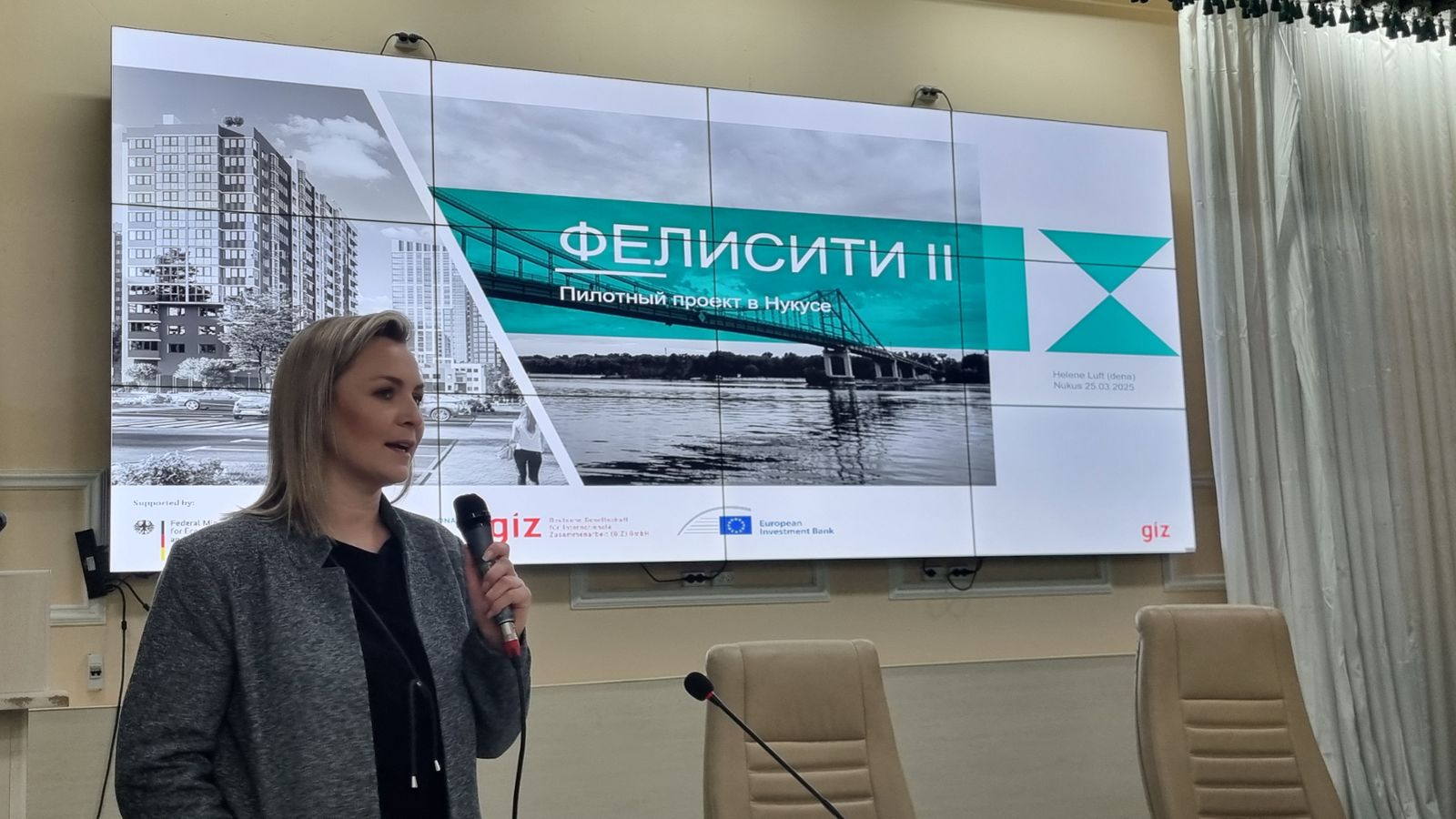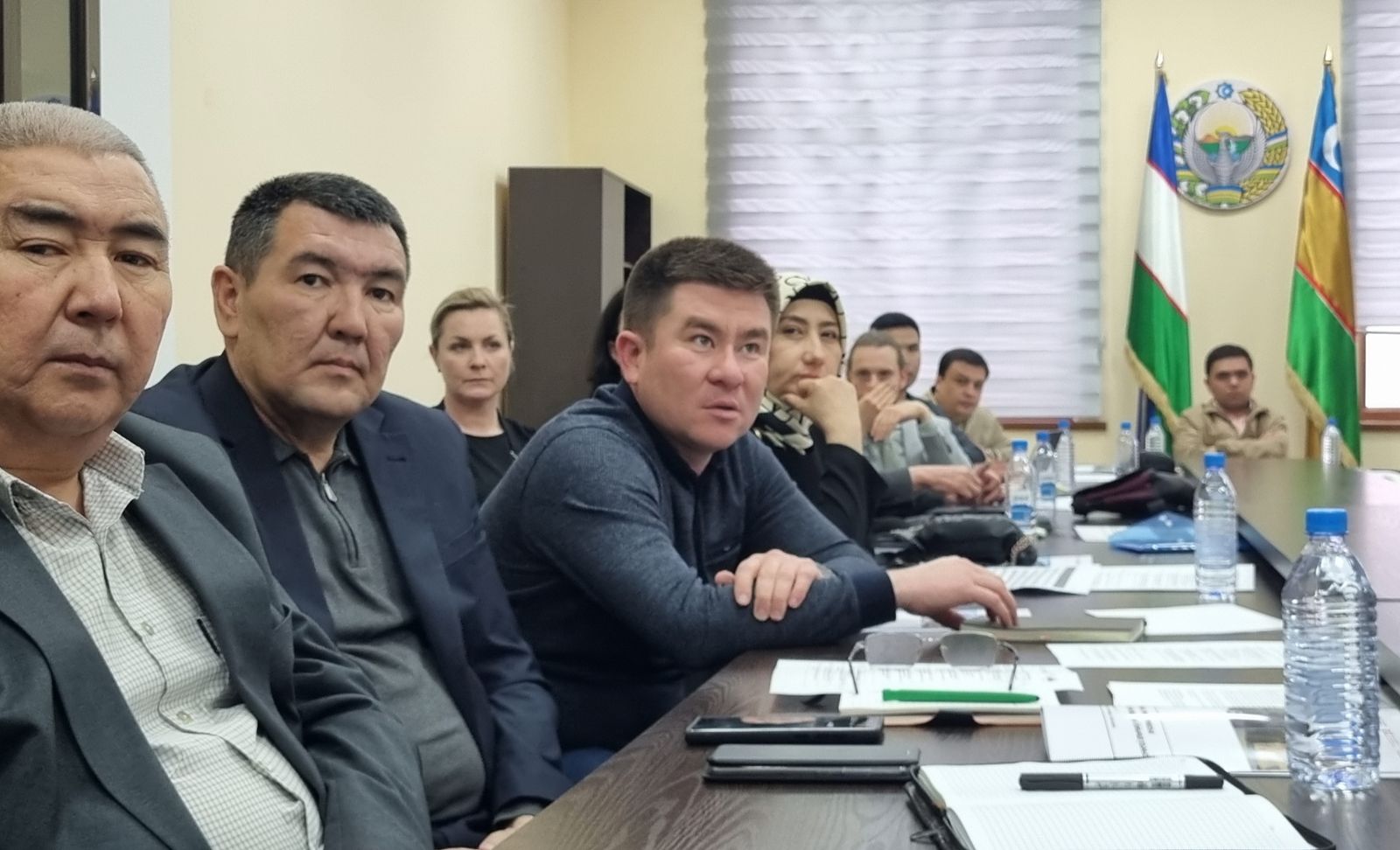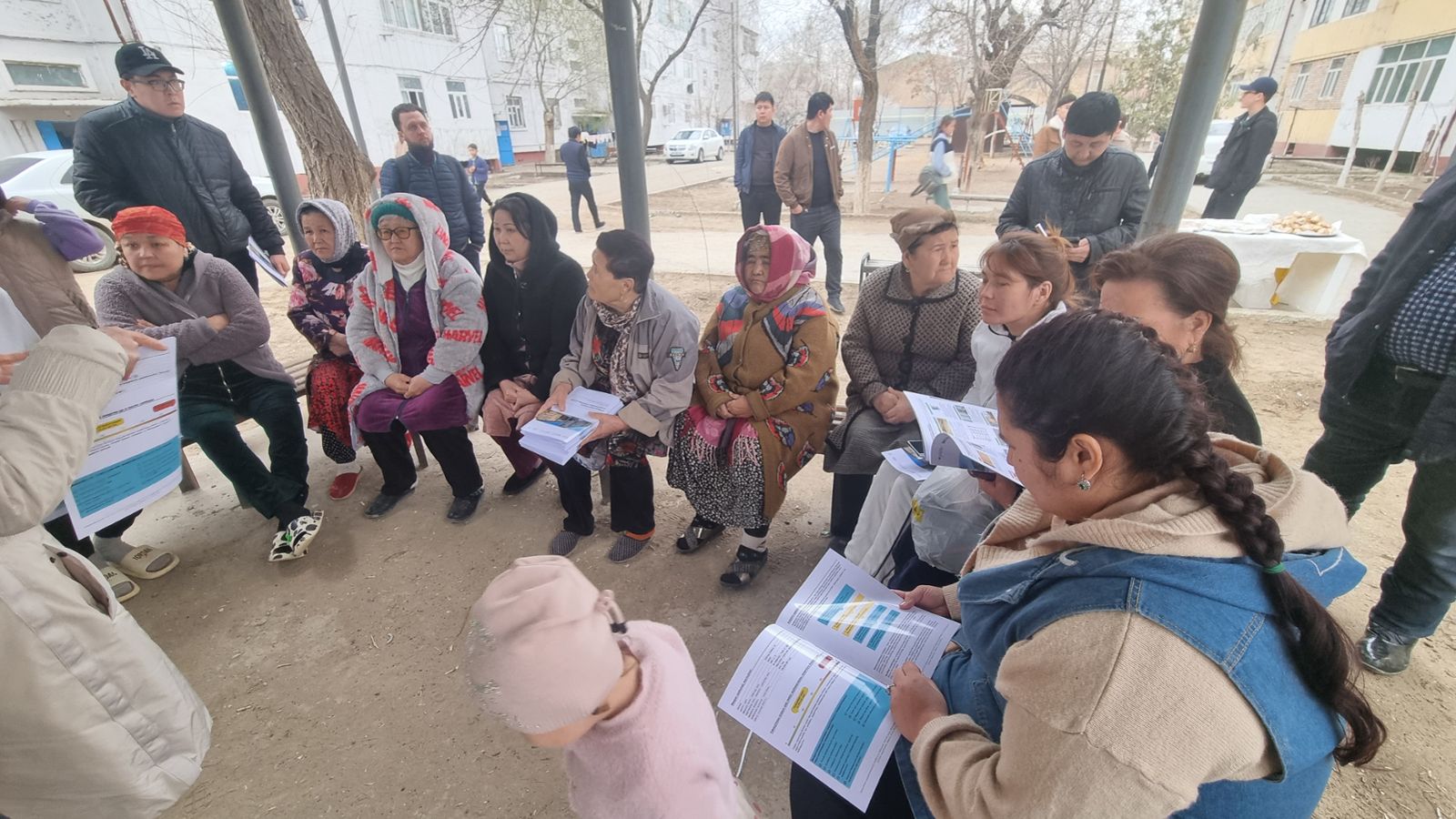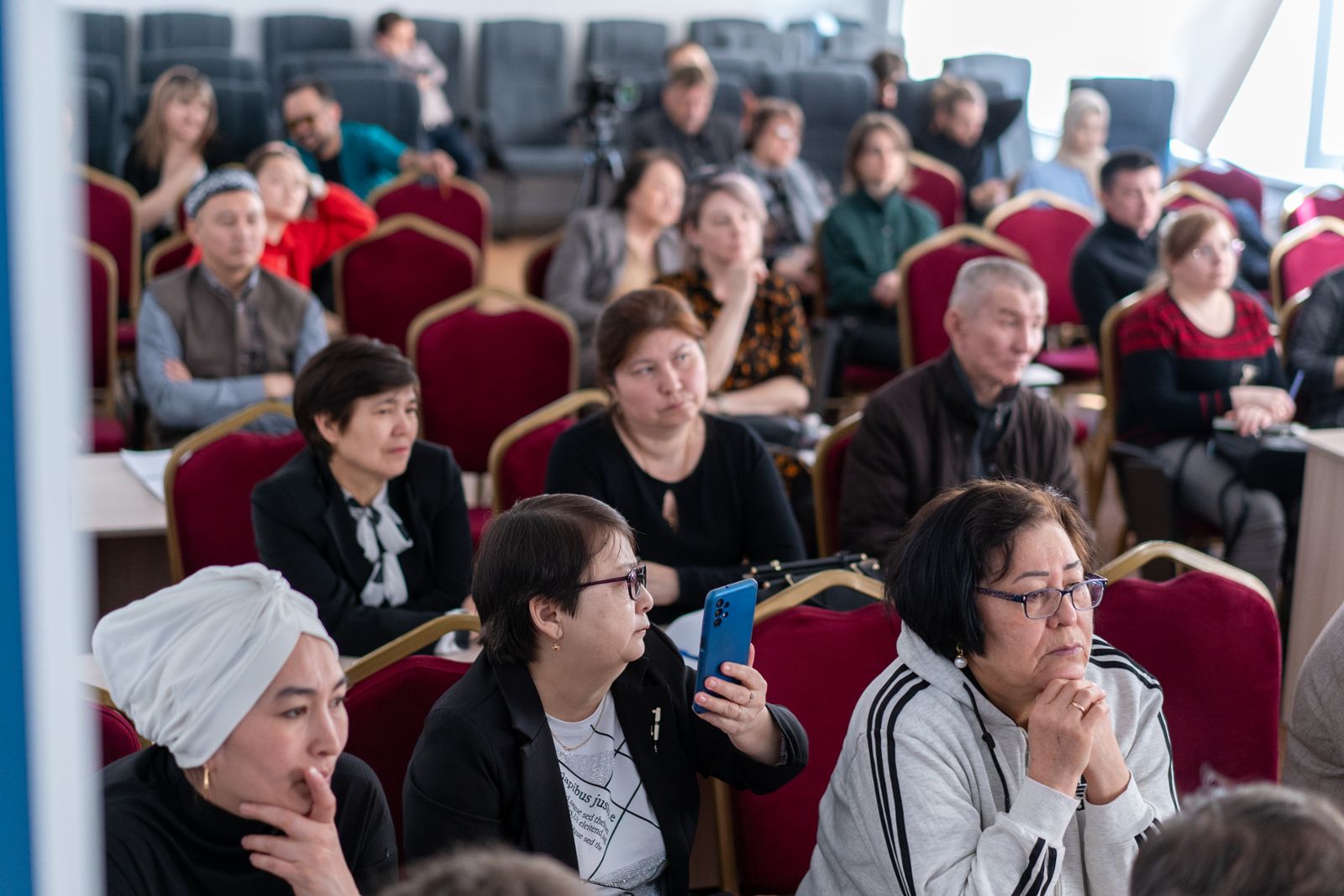News
News & Events
2 April 2025
Report - Press release
Nukus and Kokshetau on the road to an energy-efficient future
On 24 and 25 March 2025 in Nukus (Uzbekistan, Republic of Karakalpakstan), the next stage of activities under the FELICITY II pilot project aimed at energy modernisation of apartment buildings kicked off. The project is implemented with financial support from the German Ministry of Economic Affairs and Climate Protection (BMWK) within the International Climate Initiative (IKI). The project partners are the German Society for International Cooperation (GIZ), the German Energy Agency (dena), the Housing Initiative in Eastern Europe (IWO e.V.) and the European Investment Bank (EIB).
Modernisation of Soviet-era residential buildings is one of the most pressing challenges for Uzbekistan and other post-Soviet countries. Most of these buildings were constructed decades ago and today have low energy efficiency, which leads to inconvenience for residents, high utility costs and excessive greenhouse gas emissions. Therefore, among the objectives of FELICITY II is not only to improve the energy efficiency of buildings, but also to create a sustainable mechanism of interaction between residents, municipalities and potential investors in energy efficiency measures.

Photo 1: Helene Luft, technical specialist of dena.
Source: GIZ Uzbekistan
On 24 March, the Ministry of Construction and Housing and Communal Services of the Republic of Karakalpakstan hosted a round table with the participation of representatives of city and national authorities, international experts from Lithuania and Germany, as well as local partners of the FELICITY II project.
The Minister of Construction and Housing Kabylbek Aitbayev opened the meeting: "This is not the first time we are discussing this project, and we are glad to hear the experience of European countries that are already actively carrying out modernisation. We are interested in systemic changes in this direction, so I urge to actively adopt the best European experience".
Representatives of the three ministries from Tashkent that are associated with the implementation of the pilot project also expressed their readiness to provide support and encourage potential scaling up.

Photo 2: Participants of the round table in Nukus.
Source: GIZ Uzbekistan
Valius Serbenta, an international energy efficiency expert, presented the Lithuanian state modernisation programme and explained the reasons for its success: "The key success factor was the active role of municipalities and the involvement of residents. But it is important to create a predictable and understandable model: who is responsible for what and how it affects each resident".
The next day, an information event with the participation of real estate management companies and residents of the pilot building was held at the Azhiniyaz Pedagogical Institute. The experts once again focused on the role of residents, stressing that responsible attitude to common property is the basis for successful modernisation.
Larissa Schreckenbach from IWO e.V. summarised the results of the residents' opinion survey, drawing attention to their high level of interest, which is a signal that local people are ready for change. One of the tasks of IWO e.V. is to support them on this path by providing them with all the information they need in an accessible language. Later, a meeting with residents was held in the courtyard of the pilot building, where the experts commented on the technical data presented in the project factsheet and answered questions from homeowners. This open format is an important aspect of increasing the trust
and informed participation of residents in the modernisation process.

Photo 3: Meeting with residents of the pilot house in Nukus.
Source: GIZ Uzbekistan
After Nukus, IWO and dena experts moved to Kokshetau, Kazakhstan, to carry out similar activities in another pilot project. As in Nukus, the main focus was on further steps in sustainable interaction between the city, real estate management companies and the residents.
After a round table with local authorities, where strategic modernisation objectives were discussed, a practical workshop with the management companies took place. Alexander Dolgov, an international energy efficiency expert, noted the following: "Our experience shows that management companies can become an important driver of change. But for this they need not only understanding of their role, but also training and, of course, the trust from the residents.”

Photo 4: Seminar with management companies of Kokshetau.
Source: GIZ Kazakhstan
At the meeting with the residents of the pilot building, concrete technical solutions were presented, and numerous questions were answered. Helene Luft, technical expert from dena, emphasised the importance of ensuring that everyone involved in the process clearly understands what modernisation involves, i.e. what measures are proposed and what the technical parameters of the design are.
Summing up all the events organised in the two pilot cities, it is important to note that sustainable transformation of the housing stock is only possible with the active involvement of all stakeholders. These insightful meetings also showed that with the active participation of residents, the support of local and national authorities, and continuous multilateral dialogue, the path to energy efficient and comfortable housing will become a reality.
For more information and media enquiries, please contact Larissa Schreckenbach.